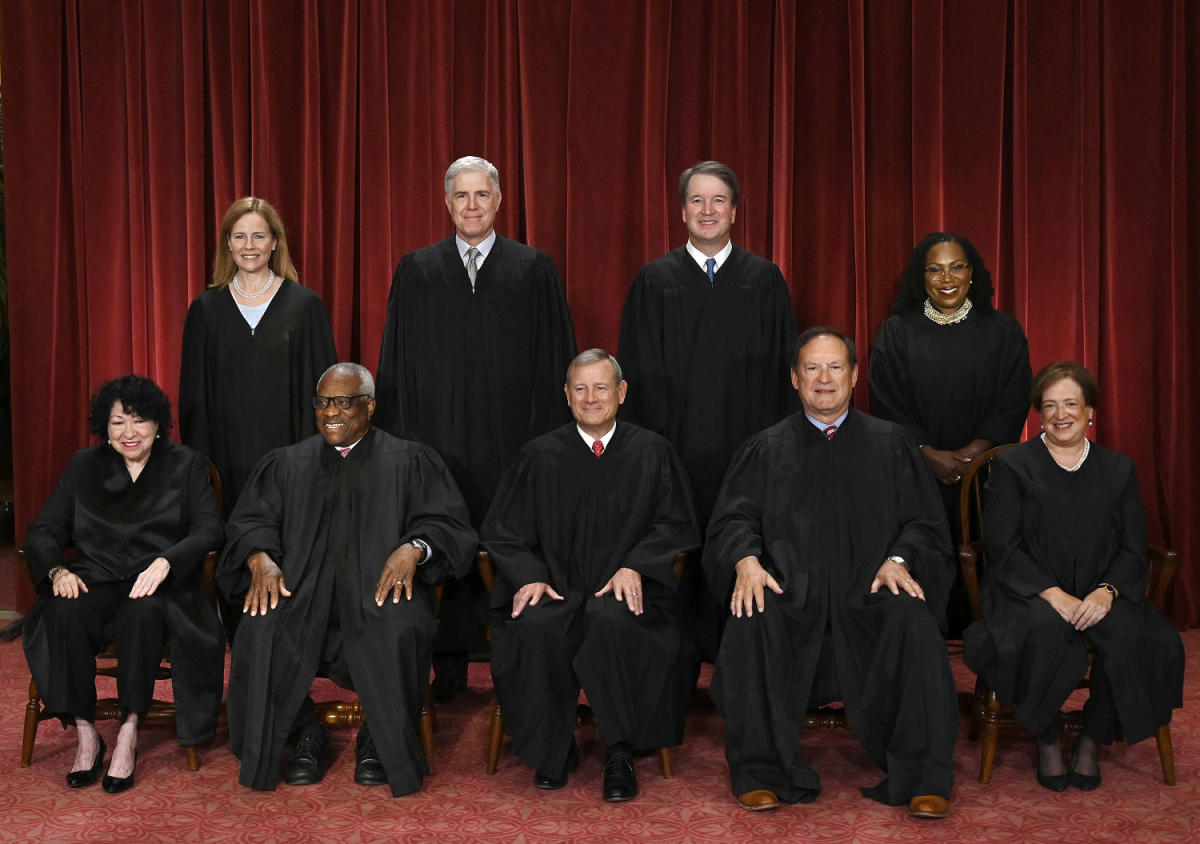Even before Thursday’s immunity hearing, the Supreme Court had already given Donald Trump a win of sorts. The court had decided to hear the appeal when it didn’t have to and then scheduled the hearing on the very last argument day of the term.
So a question heading into the argument was whether there’d be any indication of the justices coalescing around a unanimous theory that might lend itself to a speedy ruling, such that a pre-election trial might be possible. But after the lengthy hearing, it’s difficult to see the justices coming together quickly — to say nothing of what, precisely, that resolution would look like.
Part of the problem stemmed from the fact that some justices (mainly Democratic appointees) sounded more concerned about the possibility of presidents committing crimes with impunity, while other justices (mainly Republican appointees) sounded more concerned about presidents being held accountable for committing crimes.
Justice Elena Kagan, for example, asked Trump lawyer John Sauer if a president would have immunity for staging a coup with the military. Amazingly, Sauer said it would depend on the circumstances. The former president’s lawyer said it could fall within the realm of “official acts,” which Trump argues are off-limits for prosecutors. The specific issue that the Supreme Court decided to review back in February is: whether a former president enjoys immunity from criminal prosecution for conduct alleged to involve official acts during his tenure in office, and if so, to what extent.
It was Justice Sonia Sotomayor who raised the infamous hypothetical from the appeals court argument of a president ordering the murder of a political opponent. Sauer said that one could be off-limits, too. Justice Ketanji Brown Jackson asked why presidents are special, given that many people have hard jobs but are still bound by the law. She worried about presidents turning their tenures into crime sprees if they know ahead of time that they’ll be immune from prosecution.
On the other side of the ledger, we had the likes of Justice Samuel Alito — not normally a champion of criminal defendants’ rights — who sounded deeply concerned that a president could face accountability for their actions after they leave office. He worried that making a “mistake” could subject them to criminal prosecution, just like everybody else. The Justice Department’s lawyer, Michael Dreeben, responded with the simple observation that “making a mistake is not what lands you in a criminal prosecution.”
Justice Brett Kavanaugh also raised broad concerns about protecting presidential power, while Justice Neil Gorsuch said that he wasn’t as concerned with Trump’s case as he was with future cases. That concern is in line with the way that the justices theoretically view all their cases: Supposedly, they’re ruling on principles, not parties.
But the fact that the court chose Trump’s case to announce whatever immunity principle is already functionally a win for the former president. Indeed, the federal election interference case in which he launched his pretrial immunity appeal was supposed to start trial in early March but has been on hold pending the immunity ruling. It could have even reached a verdict by now, but instead his New York state criminal trial was first to get underway.
Even if the forthcoming ruling doesn’t help Trump avoid prosecution in theory (because at least some of the allegations against him don’t stem from such official acts), it could still help him in practice. There could be further litigation required in the trial court and/or the appeals court over how the Supreme Court’s forthcoming ruling applies to his case. But even if no further litigation is required, every day that goes by between now and the ruling coming down is another win for Trump. If he wins the November election, the indictment that alleges his illegal attempt to overthrow his 2020 election loss is as good as gone. He has pleaded not guilty.
As to the timing of the ruling — it being the final argument of the term — the justices now have to decide a stack of already-argued cases (plus whatever emergency litigation may come up). There are many important appeals left to decide on abortion, guns and much more. Any separate opinions from justices could lengthen the drafting process, as could the time it would take to harmonize any disagreement into a unanimous opinion. The justices typically issue the last of the term’s rulings by late June. If they prioritize deciding Trump’s case in the same way that they prioritized the scheduling of his argument, then we may not have the immunity ruling for another couple of months. Whatever opinion comes down at that point might not matter for Trump’s case — if he wins the election.
Subscribe to the Deadline: Legal Newsletter for weekly updates on the top legal stories, including news from the Supreme Court, the Donald Trump cases and more.
This article was originally published on MSNBC.com
